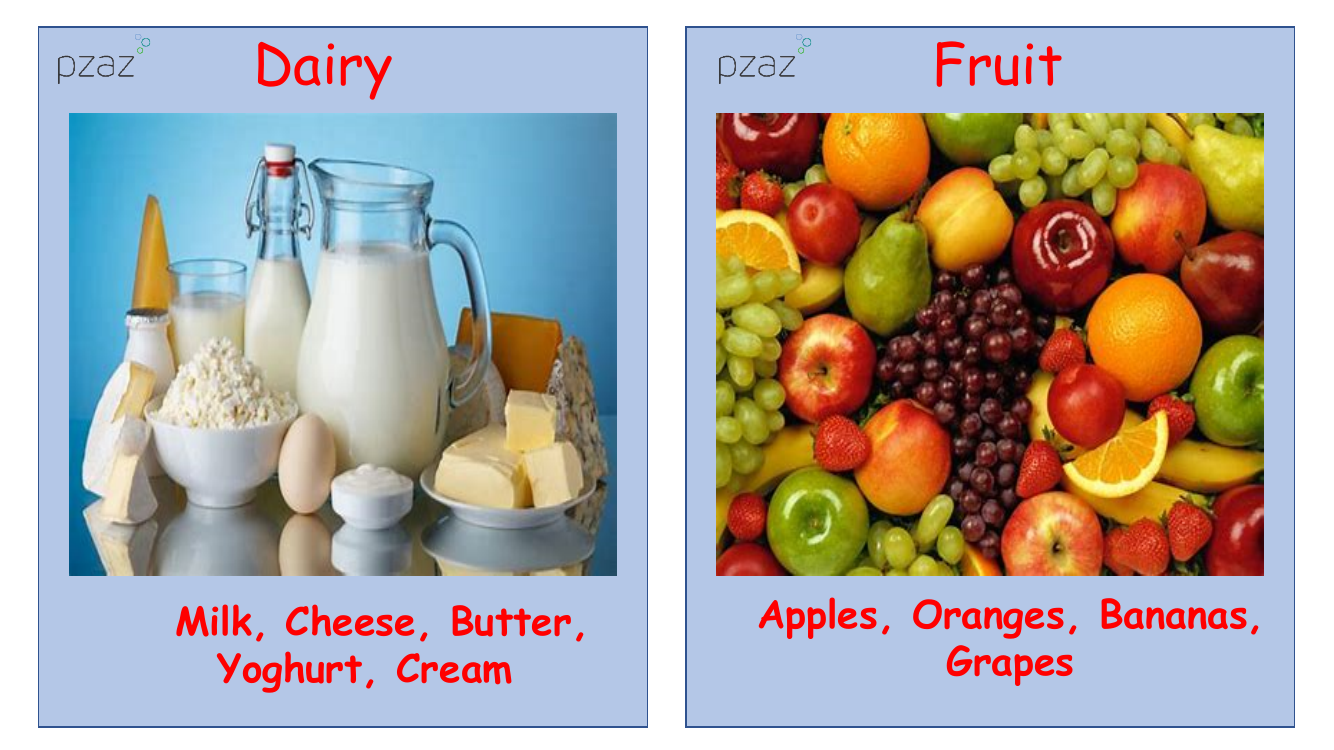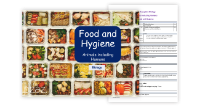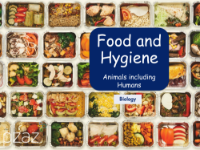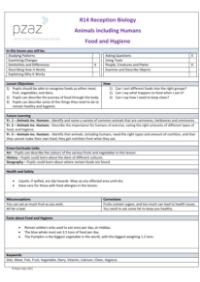Food and Hygiene - Food Cards

Science Resource Description
When discussing food and hygiene, it's useful to categorize food items to better understand their storage and handling requirements. Dairy products, for example, include essentials like milk, cheese, butter, yoghurt, and cream. These items usually require refrigeration to maintain freshness and prevent spoilage. On the other hand, fruits such as apples, oranges, bananas, and grapes are often stored at room temperature or refrigerated to extend their shelf life. These natural sweet treats are not only delicious but also provide essential vitamins and nutrients.
Vegetables, including carrots, peppers, broccoli, and onions, are another crucial category in a balanced diet, offering a range of health benefits and are usually stored in a cool, dry place or refrigerated. Meats such as beef, pork, lamb, sausage, and bacon require careful handling and storage to prevent bacterial contamination and are typically kept refrigerated or frozen. Poultry, like chicken, duck, and goose, also falls under this category and shares similar storage guidelines. Lastly, fish varieties like cod, haddock, and sardines are rich in omega-3 fatty acids and are generally stored chilled or frozen to preserve their delicate texture and flavour. Proper storage and handling of all these food groups are paramount to food safety and hygiene.




